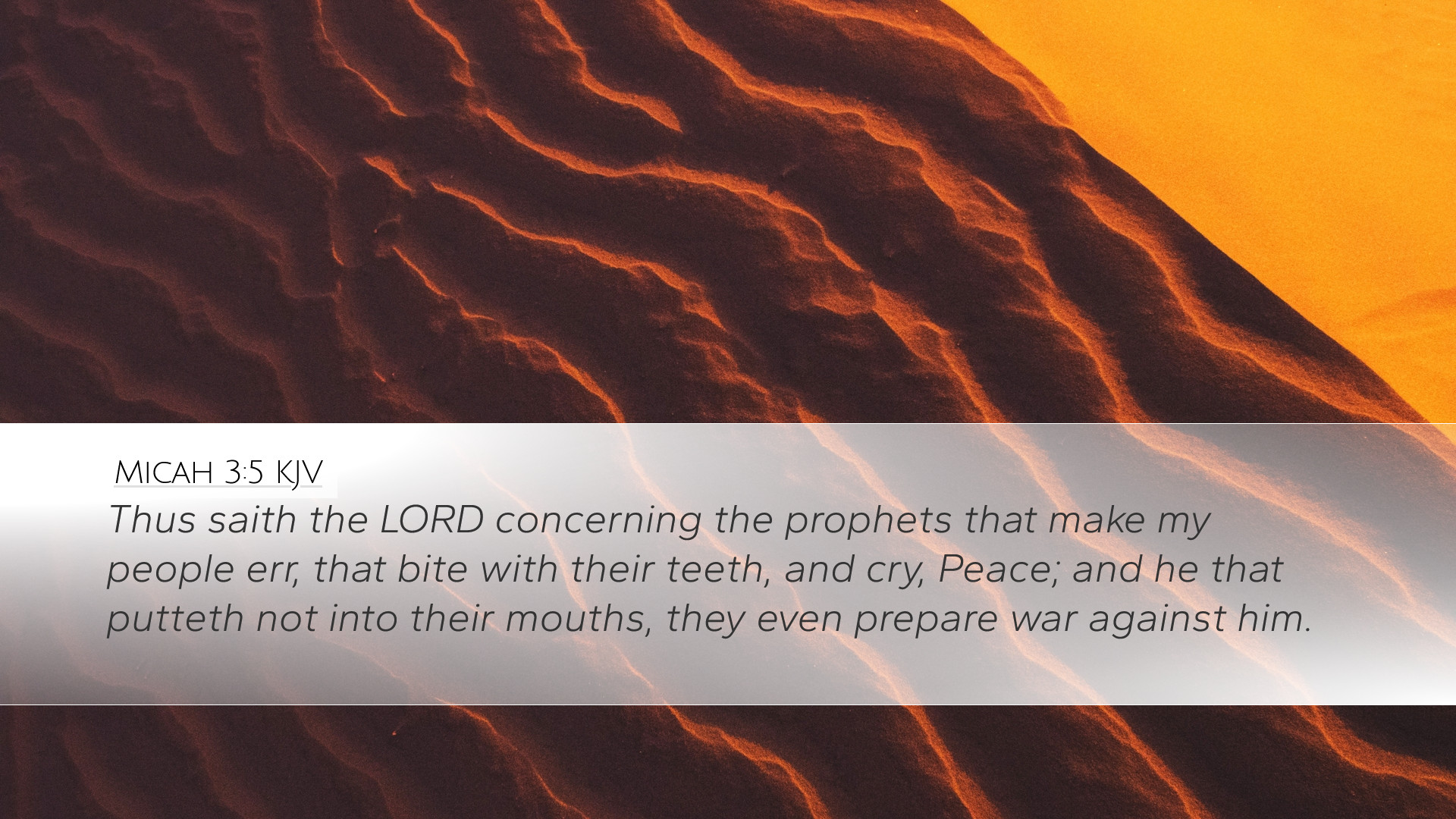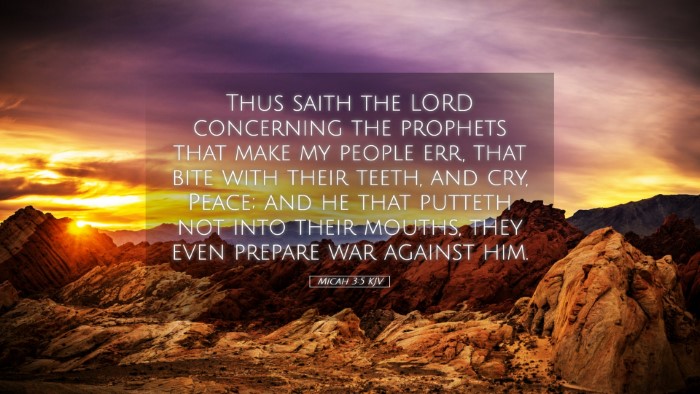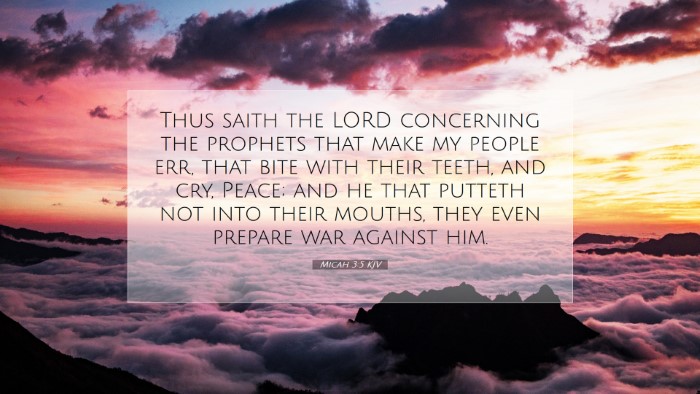Old Testament
Genesis Exodus Leviticus Numbers Deuteronomy Joshua Judges Ruth 1 Samuel 2 Samuel 1 Kings 2 Kings 1 Chronicles 2 Chronicles Ezra Nehemiah Esther Job Psalms Proverbs Ecclesiastes Song of Solomon Isaiah Jeremiah Lamentations Ezekiel Daniel Hosea Joel Amos Obadiah Jonah Micah Nahum Habakkuk Zephaniah Haggai Zechariah MalachiMicah 3:5
Micah 3:5 KJV
Thus saith the LORD concerning the prophets that make my people err, that bite with their teeth, and cry, Peace; and he that putteth not into their mouths, they even prepare war against him.
Micah 3:5 Bible Commentary
Bible Commentary on Micah 3:5
Micah 3:5 states: "Thus saith the LORD concerning the prophets that make my people err, that bite with their teeth, and cry, Peace; and he that putteth not into their mouths, they even prepare war against him."
Contextual Background
The Book of Micah is a minor prophet in the Old Testament, known for its poignant social critique and prophetic declarations against both leaders and false prophets in Israel. Micah prophesied during the 8th century BCE, a time marked by moral decay and social injustice. The verse under consideration highlights the grave responsibility of spiritual leaders and the consequences of leading the people astray.
Analysis of the Verse
In this verse, Micah articulates a powerful condemnation of the false prophets who misguide the people for personal gain. The phrase "make my people err" emphasizes the active role these prophets play in leading the faithful into spiritual confusion and moral failure.
Insights from Commentary
-
Matthew Henry:
Henry notes that these prophets claim peace but do not hesitate to promote disorder and conflict when it serves their interests. They are likened to mercenaries, who engage in spiritual warfare against those who refuse to line their pockets. Their hypocrisy makes them dangerous enemies of both God and the people.
-
Albert Barnes:
Barnes emphasizes that the phrase "bite with their teeth" metaphorically represents the selfish motives behind their prophecies. Rather than offering true guidance, they exploit their position to manipulate and control the people, revealing their greed and deceitfulness.
-
Adam Clarke:
Clarke elaborates on the consequences of false prophecy, explaining that when God's voice is misrepresented, divine judgment inevitably follows. He discusses the nature of true prophecy contrasted with falsehoods, urging that true prophets should not only speak peace but also promote justice and righteousness.
Theological Implications
This verse serves as a cautionary tale about the nature of prophetic authority and the ethical responsibilities that accompany it. It highlights the Biblical principle that spiritual leaders are accountable not only for their actions but also for the impact those actions have on the community they serve.
Practical Application
For pastors and church leaders, Micah 3:5 serves as a reminder to speak truthfully and to uphold ethical standards in ministry. The scripture calls for integrity, urging leaders to be shepherds of their congregations rather than self-serving influencers. It also prompts congregants to discern the messages they receive and to hold their leaders accountable to God's Word.
Conclusion
In conclusion, Micah 3:5 brings to light the grave danger posed by false prophets who prioritize personal gain over divine truth. The insights from prominent commentaries underscore the need for spiritual vigilance, integrity within leadership, and a deep commitment to God’s justice. As we reflect on this passage, let us actively seek to be carriers of truth and bearers of peace, actively rejecting the allure of any falsehoods that would lead us astray.


